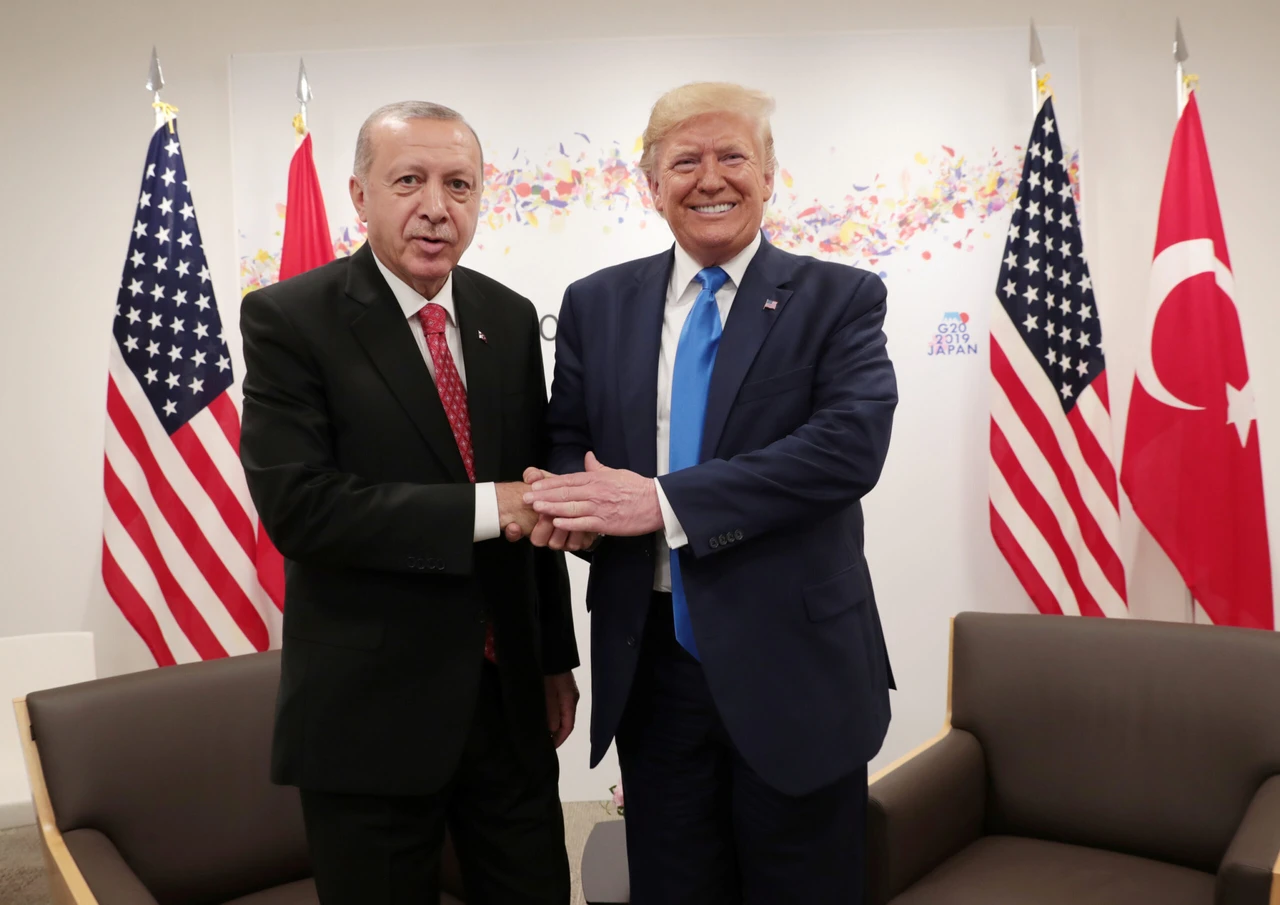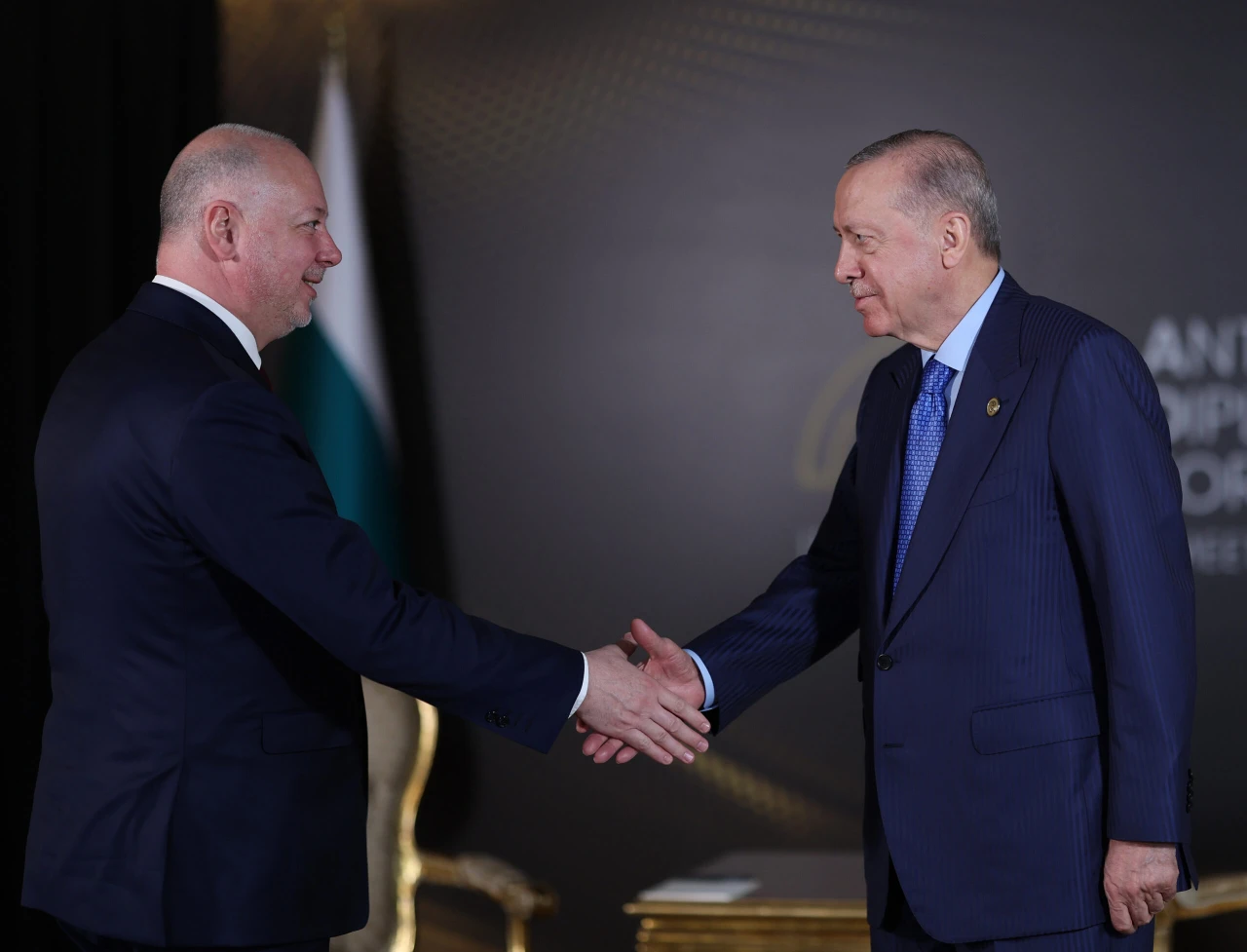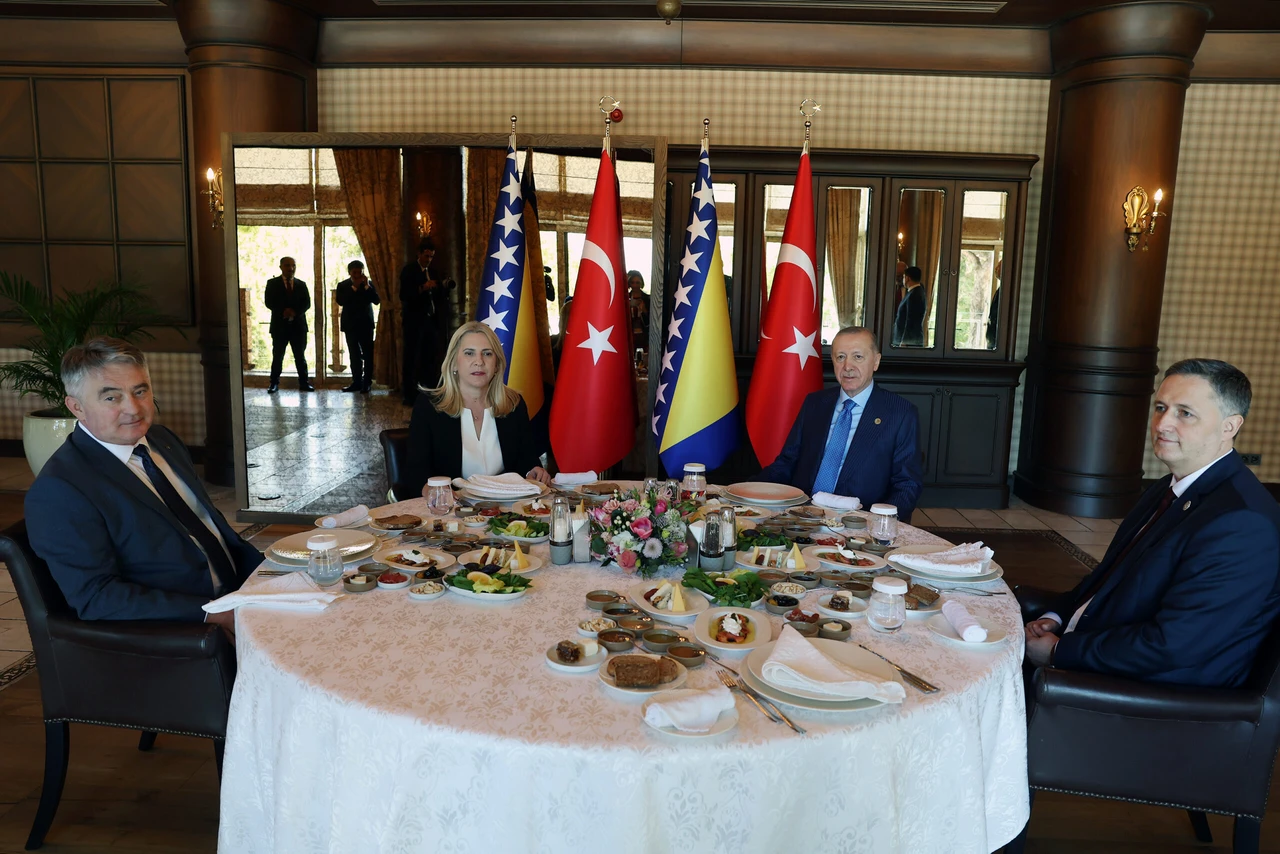Erdogan tricked Trump on Syria, former US National Security advisor claims
 President Recep Tayyip Erdogan shakes hands with US President Donald Trump during their bilateral meeting on the sidelines of the G20 leaders summit in Osaka, Japan, June 29, 2019. (Reuters Photo)
President Recep Tayyip Erdogan shakes hands with US President Donald Trump during their bilateral meeting on the sidelines of the G20 leaders summit in Osaka, Japan, June 29, 2019. (Reuters Photo)
President Recep Tayyip Erdogan reportedly misled former U.S. President Donald Trump about the prospects of Syrian President Bashar al-Assad winning the Syrian Civil War, according to a new book by HR McMaster, Trump’s former national security advisor.
In At War with Ourselves: My Tour of Duty in the Trump White House, McMaster describes Erdogan’s efforts to sway Trump’s decisions on Syria. During a phone call on November 24, 2017, Erdogan argued that the defeat of the Islamic State group eliminated the need for U.S. support to the Kurdish-led Syrian Democratic Forces (SDF). Erdogan characterized ongoing arms transfers to the SDF as a “waste of money,” which McMaster claims Trump accepted despite knowing the claims were misleading.
McMaster writes that Erdogan, alongside Russian President Vladimir Putin, portrayed Assad as the inevitable victor in the conflict to gain Trump’s approval for a resolution brokered by Türkiye, Iran, and Russia. The book suggests Erdogan exploited Trump’s aversion to prolonged military engagements in the Middle East to push his agenda.
The former national security advisor alleges that Erdogan lied to Trump to prevent the rise of a Kurdish army, which could threaten Türkiye’s territorial integrity. McMaster also accuses Erdogan of accusing him of delaying their conversations during a call on March 22, 2018. This, McMaster claims, contributed to tensions between himself and Trump.
According to McMaster, Trump acknowledged the perceived wastefulness of supporting the SDF, responding, “You’re right, it is ‘ridiculous’,” in the November 24 call. McMaster refutes this, stating Trump never instructed him to halt arms deliveries. McMaster also describes a subsequent call where Trump promised Erdogan a direct phone line to avoid future delays.
Beyond McMaster’s account, other sources highlight the complexities of U.S.-Türkiye relations during this period.
Reports from the time show that Erdogan’s influence extended to other areas of U.S. policy. For example, the Turkish government successfully lobbied the Trump administration to limit sanctions related to Türkiye’s purchase of the Russian S-400 missile system.
Additionally, former U.S. officials have confirmed that Erdogan’s lobbying efforts were part of a broader strategy to reshape U.S. policy in the Middle East, including pressuring the Trump administration to reduce support for Kurdish groups in Syria.
McMaster’s book also coincides with a broader review of U.S. foreign policy decisions under Trump, revealing that Erdogan’s manipulation of U.S. policy was part of a series of high-stakes diplomatic maneuvers by various foreign leaders.
The relationship between the U.S. and Türkiye was strained during this period due to multiple issues, including the U.S. support for Kurdish groups, Türkiye’s acquisition of the Russian S-400 missile system, and the detention of American pastor Andrew Brunson.
MEE says that in February 2018, McMaster traveled to Istanbul and met with Turkish officials to address these tensions. He recommended that the White House focus on preventing a complete rupture in relations with Türkiye while preparing contingency plans, including the potential relocation of U.S. military assets from Türkiye.
McMaster reflects on these events in light of Erdogan’s controversial remarks in October 2023, labeling Hamas as a “liberation group” rather than a terrorist organization, suggesting the need for revisiting the contingency plans he once proposed.



